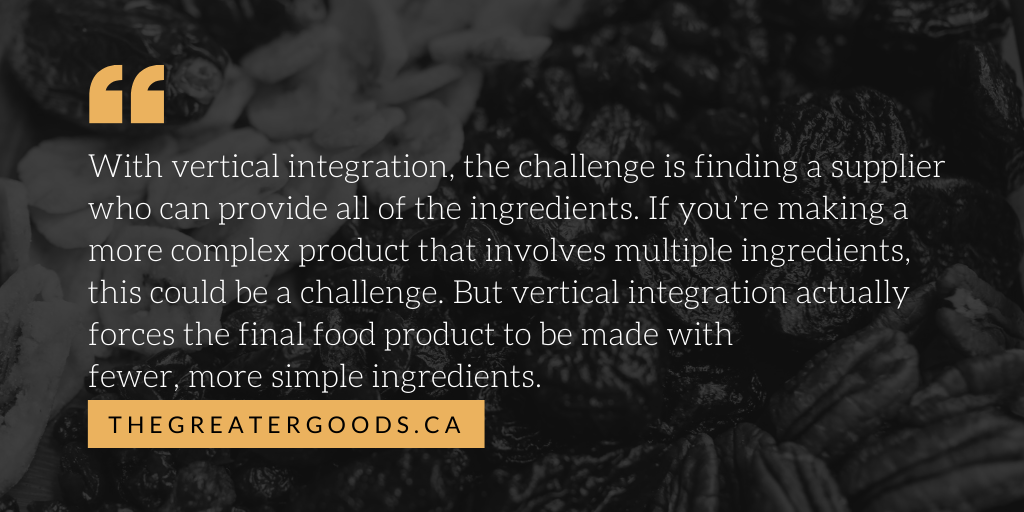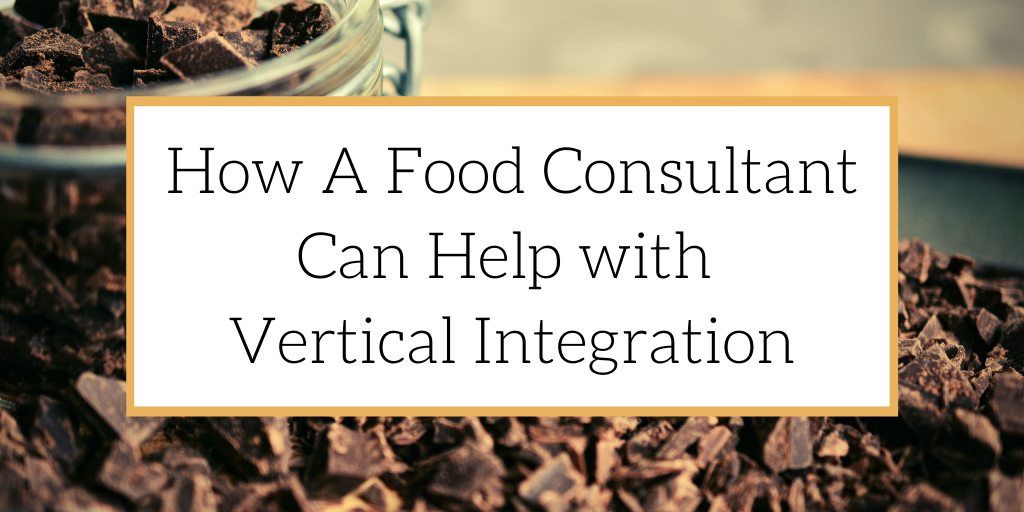When you’re looking to get a new product to market, or just starting the ideas for a new product, assessing all the aspects of production can be overwhelming.
This is where a food consultant can really help boost production drive. They can find the right ingredients for you based on a number of different factors, and connect you with the right producers and suppliers.
However, many food companies that want to simplify the process are turning to vertical integration strategies for the production of their food. Let’s dive into what that means and how it could help you start up your new product.
What is Vertical Integration?
To understand how a food consultant can help facilitate vertical ingredient integration, let’s break down what it means.
Ernst & Young LLP defines vertical integration here:
“Vertical integration, by definition, is the combination in one company of two or more stages of production normally operated by separate companies. This is typically done for reasons that tie back to quality control, reduced costs through economies of scale and even increased market share due to the high barriers of entry.”
Essentially, what it means is having one company or location be responsible for all stages of food production. From sourcing the materials to packaging and distribution, it can all be handled by one company.
You’ll usually see vertical integration at large corporations that have the funds and means to supply their own farms, factory workers and distribution trucks. However, for smaller businesses, it is possible to streamline as much of the food production process as possible.
Provide Traceability to Your Products

With the help of a food consultant, they’ll be able to connect with the right suppliers to source each ingredient for your product. However, with vertical integration, the challenge is finding a supplier who can provide all of the ingredients.
If you’re making a more complex product that involves multiple ingredients, this could be a challenge. But vertical integration actually forces the final food product to be made with fewer, more simple ingredients.
By sourcing all of your ingredients from one place, you’ll be able to see every aspect of production and provide traceability to your products. You and your consumers have more transparency on how each ingredient is sourced and where it’s coming from.
Ensure Food Safety
Adding to the idea of ingredient traceability, vertical integration also ensures food safety. If you’re able to see each aspect of production and how ingredients are sourced all in one company or facility, then you can also see if the company is following the right rules and regulations.
A food consultant can help with this because they have a depth of knowledge when it comes to food production. A third set of eyes can ensure that food production facilities are up to industry standard.
Consultants have worked with a number of different food companies at different stages of production and can help your food product follow the governmental regulations to have them approved.
Shoreline Fruit explains more on how vertically integrated products ensure food safety:
Food safety is absolutely critical within the food industry. Not only is there an enormous effort required to create, track, and test the food safety program, but every time a change is made it requires additional effort to maintain the program. Vertically integrated companies have a few key advantages in this area, one being that they work together closely on a long-term basis. A close working relationship creates a more stable environment as opposed to regularly switching suppliers.
At The Greater Goods, we specialize in organic food like nuts, nut butters, dried fruits, cocoa and chocolate. Feel free to contact us for a free consultation with our expert food industry consultants and food brokers.

One thought on “How A Food Consultant Can Help with Vertical Integration”
Comments are closed.